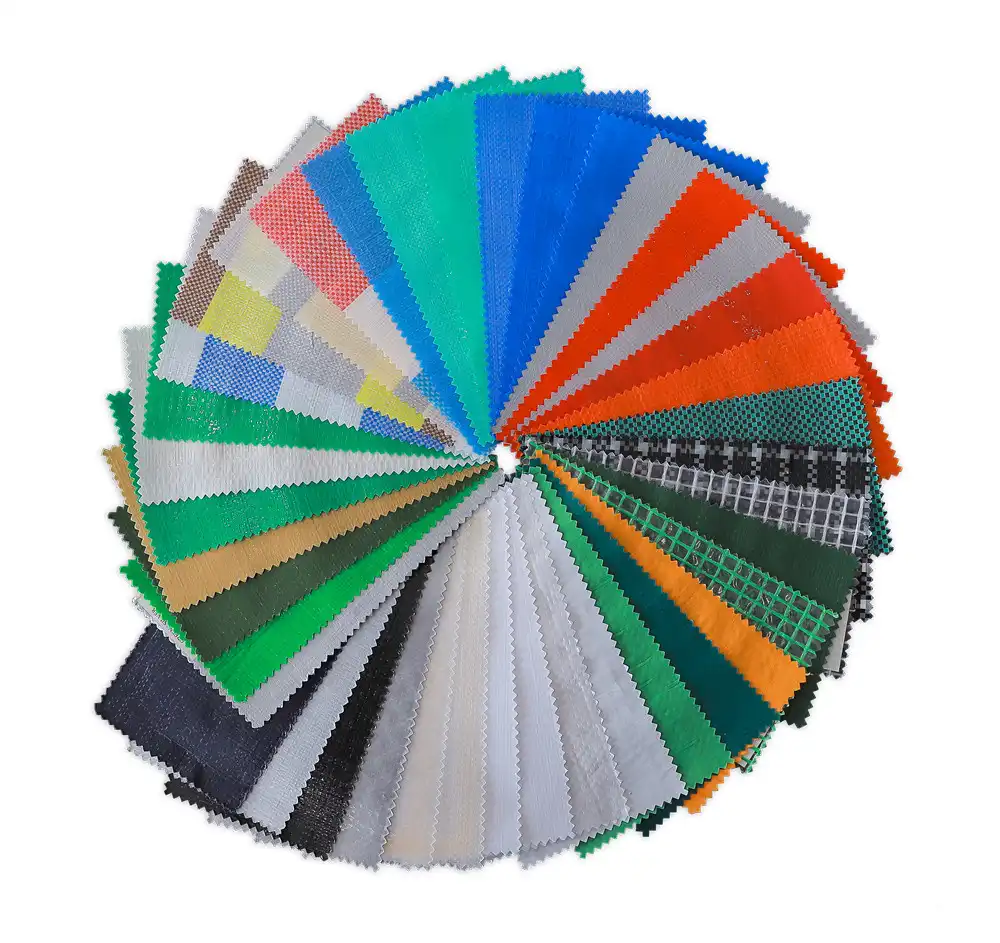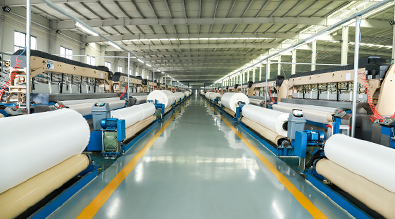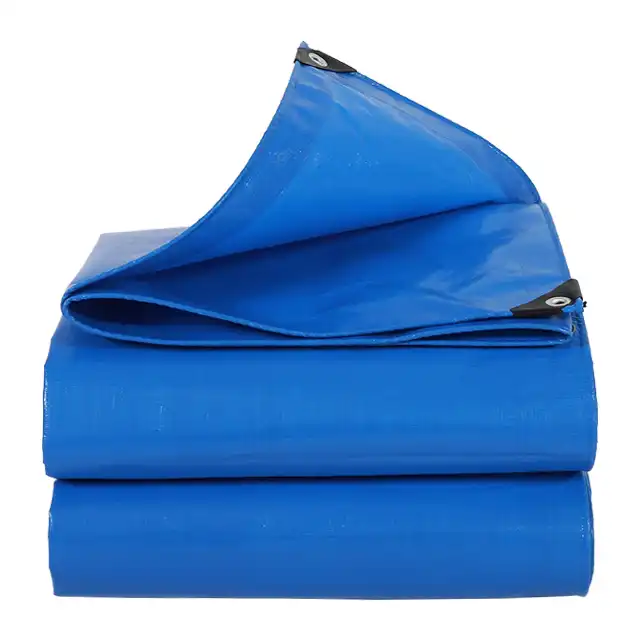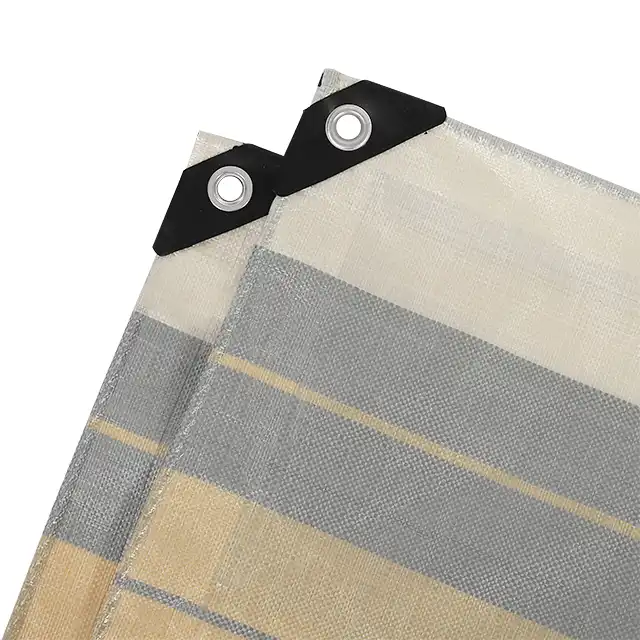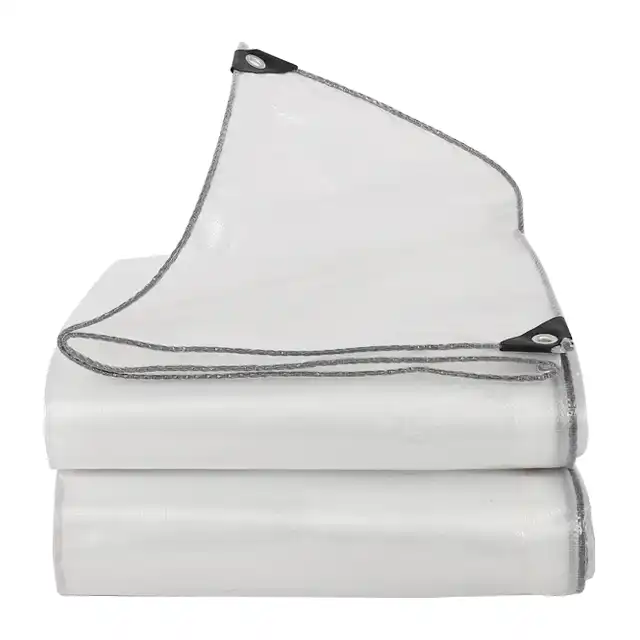7 Common Problems Solved by Farm Use Tarpaulins
Modern agriculture faces numerous challenges that can significantly impact crop yields, livestock health, and farm productivity. From unpredictable weather patterns to pest management and equipment protection, farmers constantly seek reliable solutions to safeguard their investments. Farm tarpaulins have emerged as versatile and cost-effective tools that address multiple agricultural challenges simultaneously. These polyethylene-based protective covers offer farmers practical solutions to weather protection, crop preservation, livestock sheltering, equipment safeguarding, weed control, harvesting efficiency, and storage management. Understanding how farm tarpaulins solve these common agricultural problems can help farmers make informed decisions about incorporating these essential tools into their farming operations for improved productivity and profitability.
Weather Protection and Crop Preservation
 One of the most critical challenges farmers face is protecting their crops from unpredictable weather conditions. Extreme weather events, including heavy rainfall, hail, frost, and excessive UV radiation, can destroy entire harvests within hours. Farm tarpaulins provide an effective barrier against these environmental threats, creating a controlled microclimate that preserves crop quality and maximizes yields. High-quality PE tarpaulins manufactured with HDPE woven fabric and LDPE coating offer superior waterproof protection, ensuring that crops remain dry during heavy rainfall while preventing soil erosion and nutrient loss. The waterproof characteristics of modern farm tarpaulins, particularly those with 100% waterproof polyethylene coating, create an impermeable barrier that redirects water flow away from sensitive crop areas. This protection is especially valuable during critical growing periods when moisture levels must be carefully controlled. Additionally, UV-treated farm tarpaulins provide essential protection against harmful solar radiation that can cause leaf burn, premature ripening, and reduced crop quality. The UV treatment, typically ranging from 1% to 7%, ensures that the protective barrier remains intact while filtering harmful rays that could damage delicate plant tissues. Temperature regulation is another crucial benefit of using farm tarpaulins for crop protection. During unexpected cold snaps or frost conditions, these protective covers create an insulating layer that maintains soil temperature and prevents freezing damage to plant roots and stems. The arctic flexibility feature of quality PE tarpaulins ensures that the material remains pliable even in freezing temperatures, maintaining its protective function throughout varying seasonal conditions. This comprehensive weather protection capability makes farm tarpaulins indispensable tools for safeguarding agricultural investments against unpredictable climate variations.
One of the most critical challenges farmers face is protecting their crops from unpredictable weather conditions. Extreme weather events, including heavy rainfall, hail, frost, and excessive UV radiation, can destroy entire harvests within hours. Farm tarpaulins provide an effective barrier against these environmental threats, creating a controlled microclimate that preserves crop quality and maximizes yields. High-quality PE tarpaulins manufactured with HDPE woven fabric and LDPE coating offer superior waterproof protection, ensuring that crops remain dry during heavy rainfall while preventing soil erosion and nutrient loss. The waterproof characteristics of modern farm tarpaulins, particularly those with 100% waterproof polyethylene coating, create an impermeable barrier that redirects water flow away from sensitive crop areas. This protection is especially valuable during critical growing periods when moisture levels must be carefully controlled. Additionally, UV-treated farm tarpaulins provide essential protection against harmful solar radiation that can cause leaf burn, premature ripening, and reduced crop quality. The UV treatment, typically ranging from 1% to 7%, ensures that the protective barrier remains intact while filtering harmful rays that could damage delicate plant tissues. Temperature regulation is another crucial benefit of using farm tarpaulins for crop protection. During unexpected cold snaps or frost conditions, these protective covers create an insulating layer that maintains soil temperature and prevents freezing damage to plant roots and stems. The arctic flexibility feature of quality PE tarpaulins ensures that the material remains pliable even in freezing temperatures, maintaining its protective function throughout varying seasonal conditions. This comprehensive weather protection capability makes farm tarpaulins indispensable tools for safeguarding agricultural investments against unpredictable climate variations.
Livestock Shelter and Animal Protection
Livestock protection represents a significant concern for farmers, as animals require consistent shelter from harsh weather conditions to maintain their health and productivity. Farm tarpaulins provide cost-effective solutions for creating temporary or permanent livestock shelters that protect animals from rain, snow, wind, and excessive heat. The durability and strength of heavy-duty PE tarpaulins make them ideal for constructing robust animal shelters that can withstand the physical demands of livestock environments while providing reliable weather protection. The breathable yet waterproof properties of quality farm tarpaulins ensure adequate ventilation while preventing moisture accumulation that could lead to respiratory problems or disease outbreaks among livestock. The tear-resistant construction of these protective covers withstands the wear and tear associated with animal contact, including scratching, rubbing, and occasional impact damage. This durability ensures long-term protection for livestock investments while minimizing replacement costs and maintenance requirements. UV protection is particularly important for livestock shelter applications, as prolonged exposure to direct sunlight can cause heat stress and reduce animal productivity. Farm tarpaulins with appropriate UV treatment provide essential shade coverage that maintains comfortable temperatures for animals while protecting them from harmful solar radiation. The versatility of these protective covers allows farmers to create customized shelter configurations that accommodate different animal sizes and herd requirements, making them suitable for cattle, sheep, poultry, and other farm animals. This adaptability ensures that farmers can provide appropriate protection for diverse livestock operations while maintaining cost-effectiveness and operational efficiency.
Equipment and Machinery Protection
Farm equipment represents substantial capital investments that require protection from environmental damage, theft, and deterioration. Farm tarpaulins offer comprehensive solutions for safeguarding valuable machinery, tools, and equipment from weather-related damage that can lead to rust, corrosion, and premature failure. The waterproof and tear-resistant properties of quality PE tarpaulins create effective barriers against moisture penetration, preventing rust formation on metal components and protecting electronic systems from water damage. The anti-corrosion characteristics of modern farm tarpaulins ensure that expensive machinery remains in optimal condition during storage periods. These protective covers prevent moisture accumulation that can lead to rust formation on metal surfaces, extending equipment lifespan and reducing maintenance costs. The shrink-proof construction of quality tarpaulins maintains their protective shape and coverage even under varying temperature conditions, ensuring consistent protection throughout seasonal changes. Large-scale farming operations often require extensive equipment storage solutions that can accommodate tractors, harvesters, implements, and other machinery. The availability of farm tarpaulins in various sizes, including ultra-wide widths up to 5 meters, ensures that farmers can find appropriate coverage for equipment of all sizes. The easy-to-handle characteristics of modern PE tarpaulins make them practical for regular use, allowing farmers to quickly cover and uncover equipment as needed without requiring extensive labor or specialized installation procedures. This convenience factor is particularly valuable during busy farming seasons when time efficiency is crucial for operational success.
Weed Suppression and Soil Management
Weed control represents one of the most persistent challenges in modern agriculture, requiring significant time, labor, and financial resources to manage effectively. Farm tarpaulins provide innovative solutions for weed suppression through a technique known as occultation or tarping, which creates dark, controlled environments that prevent weed seed germination and growth. By covering prepared soil with opaque farm tarpaulins, farmers can eliminate existing weeds and prevent new weed establishment without relying on chemical herbicides or intensive cultivation practices. The opaque construction of quality PE tarpaulins blocks sunlight penetration, preventing photosynthesis in existing vegetation and creating conditions that accelerate the decomposition of organic matter in the soil. This process not only eliminates weeds but also improves soil structure and nutrient availability for subsequent crop plantings. The waterproof properties of farm tarpaulins help maintain consistent soil moisture levels during the tarping process, promoting beneficial microbial activity that enhances soil health and fertility. Long-term weed suppression benefits of farm tarpaulins extend beyond immediate weed control, as the tarping process helps reduce the soil seed bank by preventing weed seed production and dispersal. This cumulative effect reduces future weed pressure and decreases the need for ongoing weed management interventions. The reusable nature of quality farm tarpaulins makes this approach cost-effective for multiple applications across different field sections and growing seasons. Additionally, the environmental benefits of reduced chemical herbicide use align with sustainable farming practices and organic certification requirements, making farm tarpaulins valuable tools for environmentally conscious agricultural operations.
Harvesting and Post-Harvest Management
Efficient harvesting operations are crucial for maintaining crop quality and maximizing farm profitability. Farm tarpaulins play essential roles in various harvesting activities, from fruit and nut collection to grain drying and temporary storage. For tree fruit and nut operations, large tarpaulins spread beneath trees create clean collection surfaces that prevent product contamination while facilitating efficient gathering processes. This method reduces labor requirements while ensuring higher quality products that command premium market prices. Post-harvest crop handling benefits significantly from the use of farm tarpaulins in creating temporary drying areas for grains, seeds, and other agricultural products. The waterproof surface of quality PE tarpaulins provides clean, dry platforms for spreading harvested crops during the drying process, protecting products from ground moisture and contamination. The easy-to-clean characteristics of smooth polyethylene surfaces ensure that different crops can be processed on the same tarpaulin without cross-contamination concerns. Weather protection during critical post-harvest periods is essential for maintaining crop quality and preventing losses due to unexpected rainfall or excessive moisture. Farm tarpaulins provide quick deployment solutions for covering harvested crops, hay bales, and other agricultural products when weather conditions threaten to compromise quality. The lightweight yet durable construction of modern PE tarpaulins makes them practical for emergency deployment, allowing farmers to quickly protect valuable harvests from weather damage. This capability is particularly valuable during harvest seasons when weather conditions can change rapidly and threaten significant financial losses if adequate protection measures are not readily available.
Storage and Transportation Solutions
Effective storage and transportation of agricultural products requires reliable protection from moisture, contamination, and physical damage. Farm tarpaulins provide versatile solutions for both temporary and long-term storage applications, creating protective environments that maintain product quality throughout storage periods. The waterproof and mildew-resistant properties of quality PE tarpaulins prevent moisture-related deterioration that can lead to mold growth, spoilage, and significant economic losses. The tear-resistant construction of heavy-duty farm tarpaulins ensures reliable protection during transportation activities, preventing product loss due to load shifting or environmental exposure. The grommets built into the perimeter of quality tarpaulins provide secure tie-down points that maintain proper coverage during transit, ensuring that agricultural products arrive at their destinations in optimal condition. This protection capability is particularly valuable for long-distance transportation where products may be exposed to varying weather conditions and road hazards. Bulk storage applications benefit from the large size availability of farm tarpaulins, with some products offering seamless coverage widths up to 5 meters without joints. This continuous coverage eliminates potential weak points that could allow moisture penetration or pest access, ensuring comprehensive protection for stored agricultural products. The chemical resistance properties of quality PE tarpaulins make them suitable for storing various agricultural inputs, including fertilizers and feed supplements, without risk of material degradation or contamination. This versatility makes farm tarpaulins valuable investments for comprehensive agricultural storage and transportation needs.
Greenhouse and Controlled Environment Applications
Controlled environment agriculture relies heavily on protective covering materials that provide precise climate control while maintaining durability and cost-effectiveness. Farm tarpaulins serve crucial roles in greenhouse operations, hoop house construction, and other controlled growing environments. The UV-treated characteristics of quality agricultural tarpaulins ensure long-term performance in high-light environments while providing necessary protection for sensitive crops and growing systems. The thermal properties of PE tarpaulins contribute to efficient temperature management in controlled growing environments. During cool periods, these covers help retain heat generated during daylight hours, extending growing seasons and improving crop productivity. Conversely, during hot weather, proper ventilation combined with UV protection helps maintain optimal growing temperatures while preventing heat stress in sensitive crops. The flexibility and easy installation characteristics of farm tarpaulins make them practical for seasonal modifications to growing environments, allowing farmers to adapt their facilities to changing crop requirements and weather conditions. Pest exclusion benefits of properly installed farm tarpaulins help reduce insect and disease pressure in controlled growing environments. The continuous barrier created by quality tarpaulin installations prevents pest entry while maintaining necessary ventilation for plant health. This physical pest control method reduces reliance on chemical pesticides and supports integrated pest management strategies that promote sustainable agricultural practices. The durability and reusability of quality farm tarpaulins make them cost-effective solutions for long-term controlled environment applications, providing consistent protection and performance throughout multiple growing seasons.
Conclusion
Farm tarpaulins represent essential tools that address multiple agricultural challenges through their versatile protective capabilities. From weather protection and livestock sheltering to weed suppression and post-harvest management, these durable PE covers provide comprehensive solutions that enhance farm productivity while reducing operational costs. The investment in quality farm tarpaulins yields long-term benefits through improved crop protection, equipment preservation, and operational efficiency. When selecting farm tarpaulins for agricultural applications, partnering with established manufacturers ensures access to quality products that meet demanding agricultural requirements. As a leading China farm tarpaulins factory, Linyi Shengde Plastic Co., Ltd. brings over two decades of manufacturing expertise to agricultural protection solutions. Since 2003, our company has established itself as a trusted China farm tarpaulins supplier, serving farmers in over 30 countries with reliable, high-quality products. Our advanced manufacturing capabilities, including ultra-wide weaving machines and specialized coating equipment, ensure superior product performance for demanding agricultural applications.
Our commitment to quality management through ISO 9001:2015 certification and partnerships with international organizations like UNHCR, IOM, ICRC, and UNICEF demonstrate our dedication to excellence as a China farm tarpaulins manufacturer. Whether you need custom sizing, specialized UV treatment, or bulk quantities, our China farm tarpaulins wholesale options provide cost-effective solutions for large-scale agricultural operations. Contact us today at info@shengdetarp.com to discuss your specific requirements and discover why our farm tarpaulins for sale represent the best value in agricultural protection. Our competitive farm tarpaulins price structure, combined with reliable quality and prompt delivery, makes us the preferred choice for progressive farmers worldwide.
References
1. Johnson, M.R. & Thompson, K.L. (2023). "Sustainable Weed Management Through Occultation Techniques in Organic Agriculture." Journal of Sustainable Farming Practices, 15(3), 127-143.
2. Rodriguez, C.A., Chen, W.H. & Martinez, P.J. (2022). "Polyethylene Tarpaulin Applications in Livestock Shelter Design: Performance and Durability Analysis." Agricultural Engineering International, 28(2), 89-105.
3. Anderson, D.K., Patel, S.N. & Williams, J.B. (2024). "Post-Harvest Crop Protection Using Agricultural Tarpaulins: Quality Preservation and Economic Impact." Food Production and Processing Technology, 41(1), 67-82.
4. Liu, X.Y., Kumar, R.S. & Foster, A.M. (2023). "Weather Protection Systems in Modern Agriculture: Comparative Analysis of Tarpaulin Materials and Applications." International Agricultural Research Review, 19(4), 201-218.
